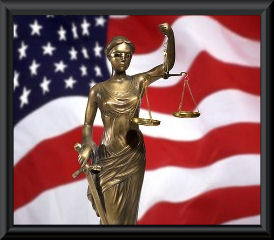 NEW YORK – Criminal charges were filed today against a Russian spy ring members Evgeny Buryakov, also known as “Zhenya,” Igor Sporyshev, and Victor Podobnyy who were trying to gather information about the U.S. economy.
NEW YORK – Criminal charges were filed today against a Russian spy ring members Evgeny Buryakov, also known as “Zhenya,” Igor Sporyshev, and Victor Podobnyy who were trying to gather information about the U.S. economy.
They also tried to recruit New York residents to spy for Russia, officials allege.
Buryakov’s worked in the United States as an agent of Russia’s foreign intelligence agency, known as the “SVR.” He was in the United States as a private citizens, posing as an employee in the Manhattan office of a Russian bank.
SVR agents operating under such non-official cover—sometimes referred to as “NOCs”—typically are subject to less scrutiny by the host government, and, in many cases, are never identified as intelligence agents by the host government.
As a result, authorities said a NOC is an extremely valuable intelligence asset for the SVR.
Buryakov, 39, was arrested Monday in the Bronx, New York. Sporyshev,40, and Podobnyy,27, no longer reside in the United States and have not been arrested, federal officials said.
By virtue of their prior positions in the United States on behalf of Russia, both of them were protected by diplomatic immunity from arrest and prosecution while in the United States, officials said.
U.S. Attorney Preet Bharara praised the investigative work of the FBI’s Counterintelligence Division for the arrests.
World News Videos | ABC World News
These are the facts and circumstances surrounding this case, according to officials.
- During the course of their work as covert SVR agents in the United States, Buryakov, Sporyshev and Podobnyy regularly met and communicated using clandestine methods and coded messages, in order to exchange intelligence-related information.
- From as early as March 2012 through as recently as mid-September 2014, the FBI has conducted physical or electronic surveillance of Buryakov and Sporyshev engaging in over four dozen brief meetings, several of which involved Buryakov passing a bag, magazine, or slip of paper to Sporyshev.
- These meetings typically took place outdoors, where the risk of effective surveillance was reduced relative to an indoor location.
- These meetings were nearly always preceded by a short telephone call between Buryakov and Sporyshev during which one of the men typically told the other that he had an item to give to him.
- Typically, during these telephone calls, which were intercepted by the FBI, the item in question was referred to as some non-specific “ticket,” “book,” “list,” or other ordinary item; e.g., “umbrella” or “hat.”
- Subsequently, at each meeting surveilled by the FBI, Buryakov and Sporyshev met and sometimes exchanged documents or other small items.
- Notably, despite discussing on about one dozen occasions the need to meet to transfer “tickets,” Buryakov and Sporyshev, were—other than one occasion where they discussed going to a movie—never observed attending, or discussing in any detail, events that would typically require tickets, such as a sporting event or concert.
- In fact, Buryakov and Sporyshev used this coded language to signal that they needed to meet, and then met to exchange intelligence information.
From November 22, 2010, to November 21, 2014, Sporyshev served as a Trade Representative of the Russian Federation in New York.
From December 13, 2012, to September 12, 2013, Podobnyy served as an Attaché to the Permanent Mission of the Russian Federation to the United Nations

